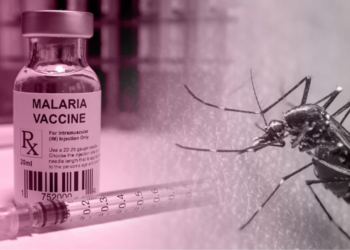The Coordinating Minister of Health and Social Welfare, Prof. Muhammad Ali Pate, has announced that the Presidential Initiative to Unlock the Healthcare Value Chain (PVAC) is set to boost Nigeria’s pharmaceutical market share in Africa, with a target of at least 15% by 2030.
He also disclosed that the initiative targets increasing local manufacturing of pharmaceutical products to meet at least 70% of our domestic demand by 2030.
Pate shared this on his X (formerly Twitter) handle on Friday.
Providing updates on the Presidential Initiative to Unlock the Healthcare Value Chain, Prof. Pate emphasized the administration’s resolve to turn the health sector into a hub for manufacturing and job creation.
“President Bola Ahmed Tinubu’s commitment to transforming the health sector involves shifting from a consumption-driven model to one that creates jobs, enhances economic value, and strengthens domestic manufacturing capacity while improving the overall productivity of our economy,” Pate wrote.
Key goals of the PVAC
Launched in October 2023, the PVAC was established by President Tinubu, with Dr. Abdul Mukhtar appointed as its national coordinator.
The initiative aims to increase local pharmaceutical production to at least 70% of Nigeria’s consumption by 2030.
It also targets expanding the life sciences manufacturing workforce from approximately 20,000 to 50,000 full-time employees setting up at least two commercially viable facilities for producing biologicals, including vaccines and establishing at least five medical manufacturing plants in the country
“This plan aims to double Nigeria’s pharmaceutical market share in Africa to at least 15% over time. I am very pleased to report that since the historic establishment of this initiative, we have achieved critical milestones,”Pate stated.
“We are witnessing tangible outcomes from this effort. For too long, Nigeria relied heavily on imports for even the most basic healthcare commodities,” Pate continued. “This government is committed to industrialization, job creation, and economic growth while ensuring that we remain competitive in global trade.”
Memorandum of Understanding (MoU) with African Exim Bank
Pate also shared details of the policy’s early successes, including the signing of a $1 billion memorandum of understanding (MoU) with the African Exim Bank, aimed at supporting domestic manufacturers and attracting foreign investments.
“Over 70 new healthcare manufacturing companies with strong projects backed by impressive business cases have already lined up with 22 large-scale projects currently in active discussions with international financiers.
“More than 10 value chain verticals have been established in the country, including manufacturing of rapid diagnostic cascades, which is exemplified by our signing of MOU South Africa-based herbal diagnostics.
Key projects and local manufacturing initiatives
Furthermore, Pate emphasized the importance of local manufacturing in reducing Nigeria’s reliance on imports for essential medicines and healthcare supplies, such as vaccines, medical oxygen, and diagnostic kits.
Dr. Pate highlighted several key projects including:
- A cryogenic air separation plant for medical oxygen.
- A rapid diagnostic kit manufacturing facility in partnership with global firms.
- A facility in Lagos produces active pharmaceutical ingredients like clavulanic acid, which has already created over 700 jobs.
- Agreements with Siemens Healthineers to establish an ultrasound assembly plant in Nigeria.
He emphasized the role of regulators like NAFDAC and the Pharmacy Council of Nigeria in creating a robust environment that fosters local industry growth.

















